As you may have noticed, we are staying on the coast for a little while - our annual working vacation. This is something we've been doing at the end of every summer for the past six years. When we lived further North, we used to go to a place in Maine, and after moving to Boston we began staying on Cape Cod. I've been writing about that for the past two summers, and it's funny how over time our trips became increasingly bicycle-oriented. Two years ago we went by car as usual, but for the first time took bikes and cycled around a bit during our stay. Last summer we arrived by car again, but got around entirely by bicycle once there and attempted some high mileage day-trips. This summer we no longer have a car and really did not want to rent one just for the trip. So after discovering that Cape Ann was accessible by commuter rail, we decided to come here instead and do the whole trip on bikes. Another reason for choosing Cape Ann, is that it is a popular starting point for long rides up the coast of Northern New England. There are no decent routes north directly out of Boston, and what cyclists often do is take the commuter rail up here before proceeding north. So that was the plan: To arrive on our bicycles, to get around by bike, and to cycle up the coast as far and as often as possible in the course of our stay.
Our main challenge was figuring out how to transport our belongings. This is not a bicycle-specific trip, so we needed more than a change of cycling clothing and rain gear. We are living here for two weeks and doing all the same things we do at home - including work-related stuff. We needed our regular clothing and footwear, personal hygiene products, bedding, towels, laptops, a variety of electronic devises, some necessary books and documents, and our camera equipment - in addition to the cycling clothing, tool kits and raingear. And all of that we fit into the luggage you see here.
For a number of logistical reasons, we decided the most practical course of action would be to turn one person into the pack mule - and since I already had a front rack and a large handlebar bag on my bike, it made sense that this would be me. I had planned to eventually get a touring-specific rear rack for my Rivendell anyway, and so that is what I did. Between the two of us, we packed a total of five bags for the trip - four on my bike and one on the Co-Habitant's.
The rear rack on my bike is a Nitto Campee with removable lowrider panels, to which we attached a set of Carradice panniers, while using the rack's platform to support a Sackville SaddleSack. These bags plus the Carradice saddlebag on the Co-Habitant's Surly contained our clothing, bedding and laptops. My Ostrich handlebar bag contained camera equipment, electronics and various other miscellaneous items. Everything was packed very tightly, and I estimate that my bicycle weighed around 100 lb when all was said and done.
The ride to the train station from our house is 4 miles through some of the busiest parts of the city. I have never ridden with my bike loaded up like this before, and the prospect of trying it for the first time in Boston traffic was nerve-wrecking. Overall, the bicycle handled fine. Once it got going, I could not feel the weight at all, and the heavy handlebar bag did not affect steering. But at very slow speeds - especially when starting and stopping - there was a fishtailing effect in the rear that took some getting used to. Also, with so much weight on the bike, the brakes were less effective than usual, which I had to keep in mind when stopping on a downhill. The frame itself had an interesting feel to it - as if it was "yielding" to the weight (mildly flexing?). The resulting ride quality was in some ways nicer than with the bicycle unloaded. Having survived this ride in traffic, loaded touring on the open road does not seem in the least daunting. Going slower than usual is, of course, a given - but the reduction in speed was not as drastic as I thought it might be. Even cycling uphill (which I got to experience once we arrived to Cape Ann and rode from the train station to the place we are staying!) was not as difficult as I expected. Thanks to a helpful reader after my description of our previous commuter rail experience, we were able to board the elusive bike train, which made the trip more pleasant still.
Once we arrived and settled in, we removed the lowrider panels from the rear rack, transforming my bike from a full-on pack-mule into a lighter ride that could still carry food and equipment when necessary. I will write more about this particular rear rack in a separate post; it is pretty neat and versatile.
The place where we are staying is somewhere between a cabin and a shack on the architectural spectrum and is the size of a small garage. It is situated on a rocky cliff overlooking the ocean, and there is a beach down the road. Despite the stormy weather, we love being here - just the two of us and our bikes. Yesterday the sun finally came out and we did a 50 mile "warm-up" ride, hoping for more soon. And it feels great that we were able to drag all of our stuff up here without needing a car. It was important to us that this did not feel like a compromise compared to the previous times we've gone away, and it most definitely does not. We were able to fit everything we need into our bicycle bags, and not having to deal with a car here feels extremely relaxing. I highly recommend giving traveling by bicycle a try!
 07:56
07:56
 kaniamazdar
kaniamazdar

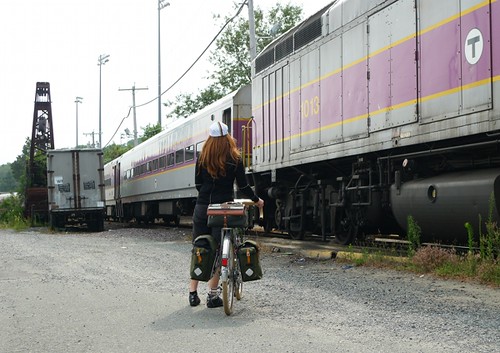
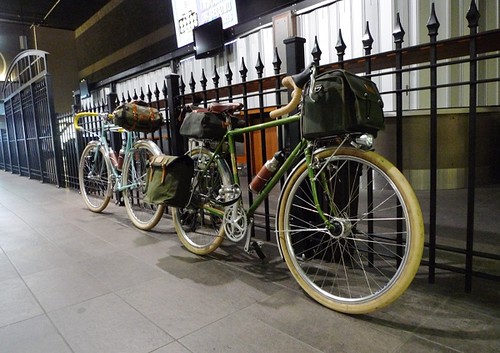
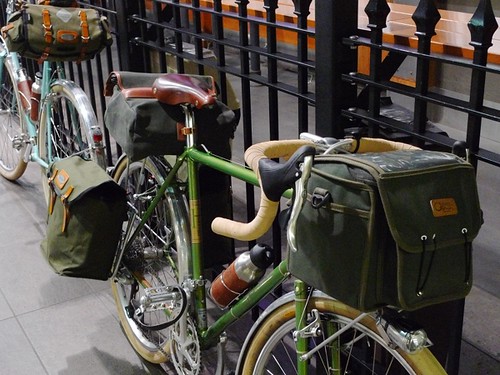
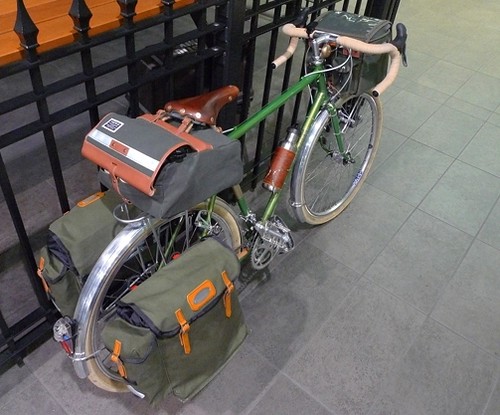
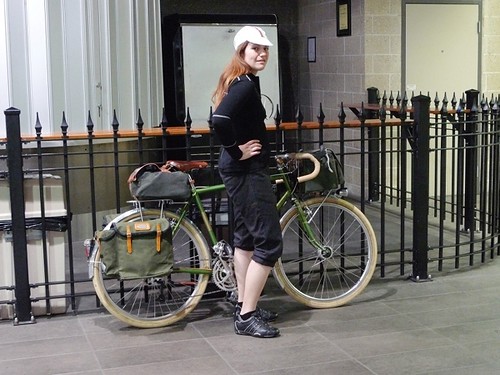
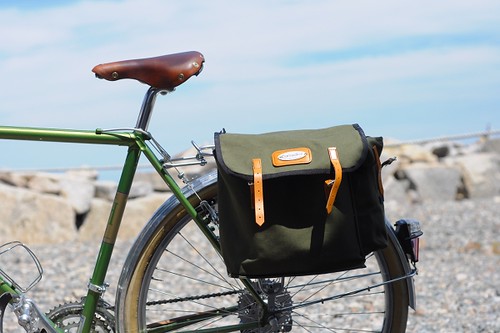
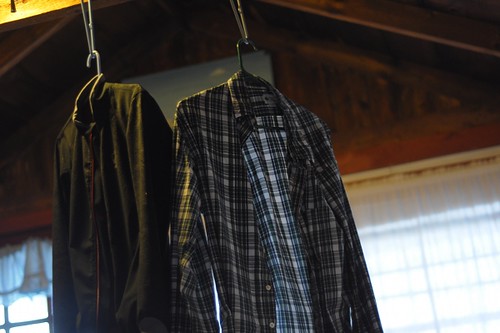
 Posted in:
Posted in: 













0 comments:
Post a Comment